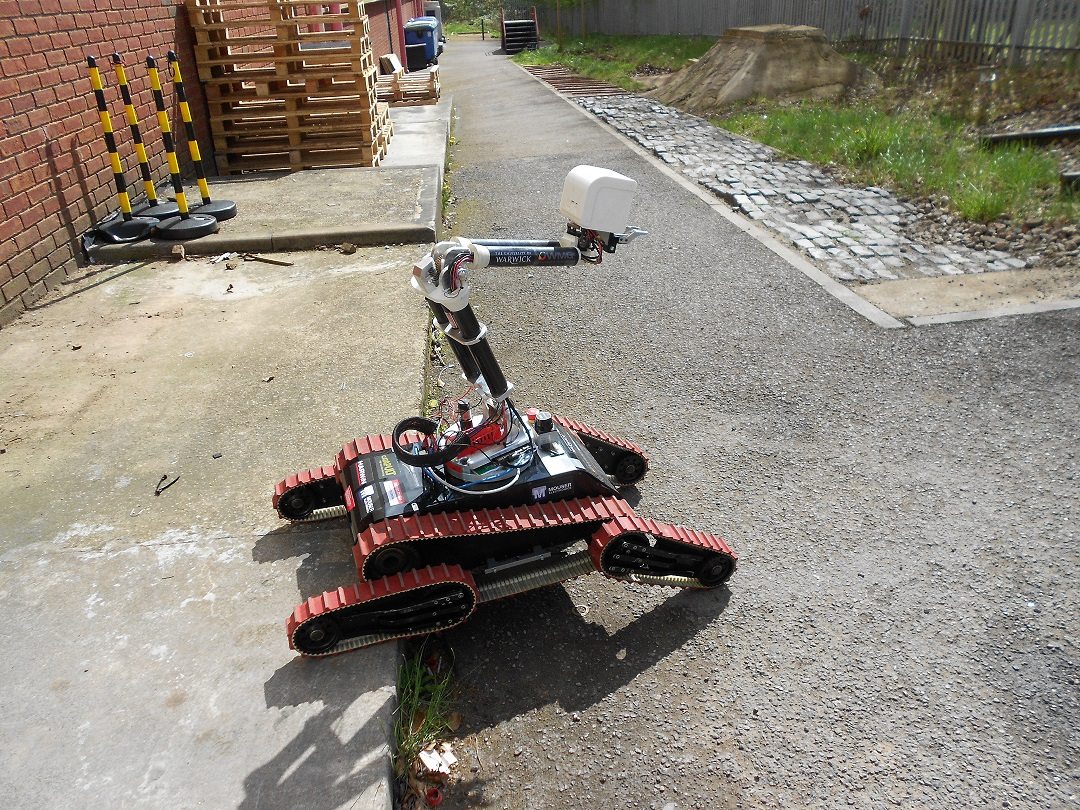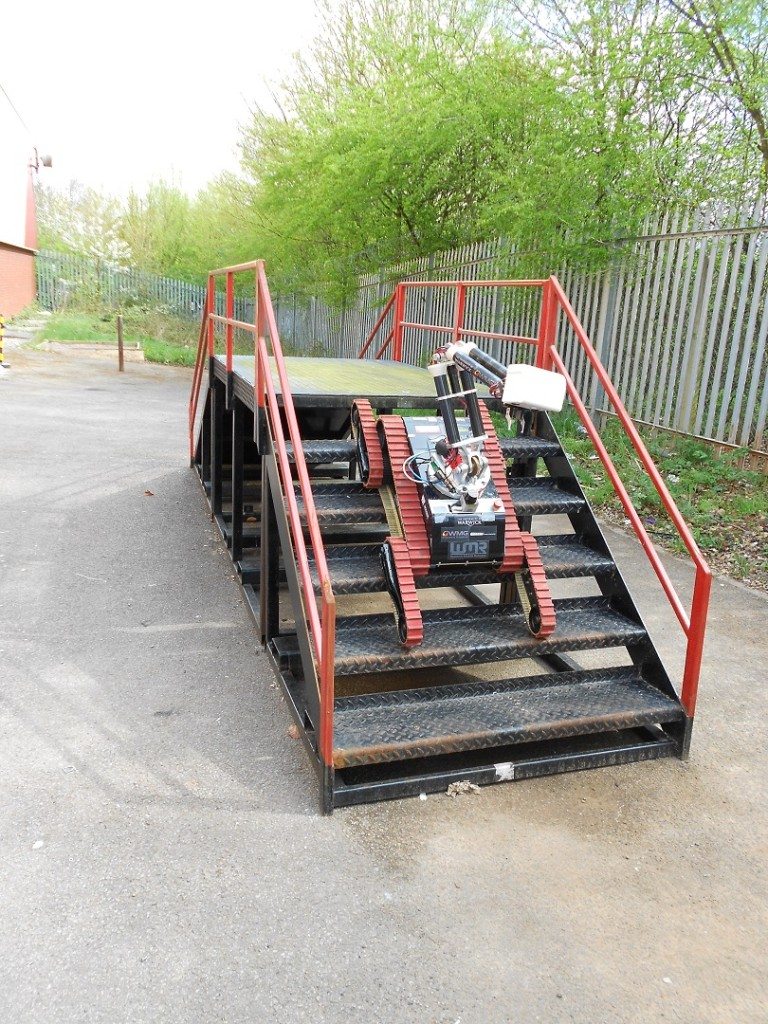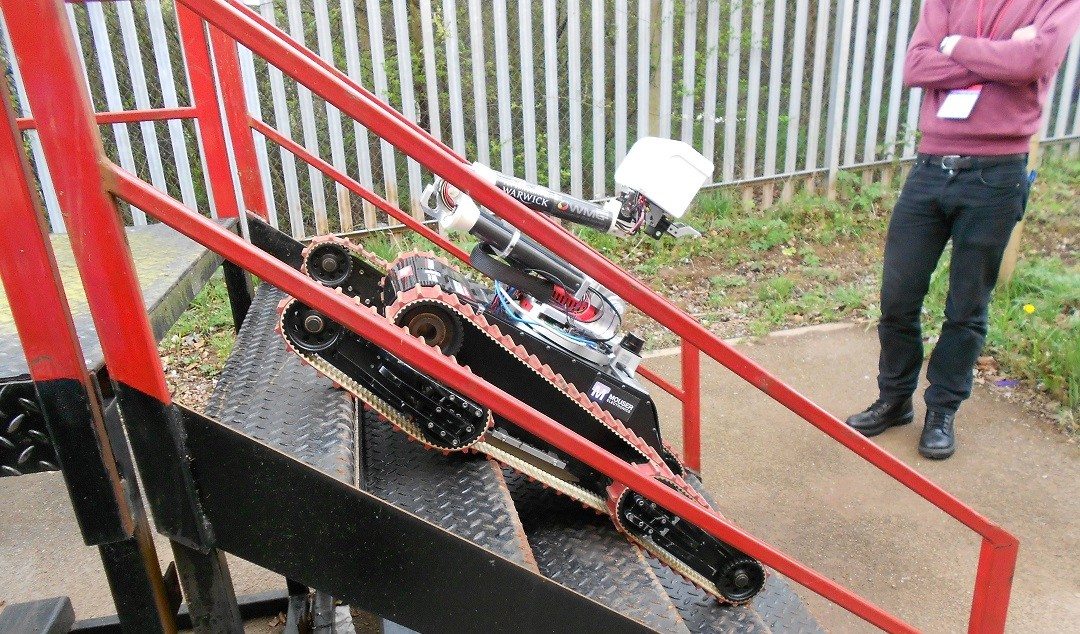WMR placed fourth in Robocup Rescue competition
Four team members of WMR were flown to Magdeburg, Germany to compete in this year’s Robocup Rescue competition on March 30. The group consists of Warwick academics working on a series of mobile robotics projects.
As a rescue competition, the aim was to construct a search and rescue robot which could operate independently in a simulated environment, such as a collapsed building, in order to help locate disaster victims.
WMR was placed fourth overall out of nine competitors in the Rescue category and second in Mobility, losing out by one point due to technical issues.
The top three teams in the competition all used two robots, one which was tele-operated and another which was autonomous, in order to maximise the number of points they scored in each round.
 |
 |
Despite this, the WMR team came out with the second highest number of points scored in any round. They gained 224 points in one round while the highest number of points scored in one round during the competition was 225.
Chris Chavasse, project manager told the Boar: “The team was extremely pleased with the result especially as we only started trying to get the old robot functioning a few weeks before the competition and nothing worked when we arrived on day one!”
He added: “After two long, stressful but rewarding setup days everything was functioning for the first round of the competition.”
Mr Chavasse explained that there were problems with the robot when WMR first arrived in Magdeburg. The team had to deal with a broken robotic arm as well as sensors and cameras which were not working. The team however were able to overcome their difficulties in having their software and cameras functioning again and repairing the robotic arm using rope.
Using a rope was not “a conventional engineering method but certainly problem-solving in a time-dependent situation,” he said, “I guess that in real search and rescue you and your team needs to stay calm under pressure and in time-sensitive situations when something goes wrong to fix the problem. In the real world it’s not just points you’d be losing.”
Reflecting on WMR’s aims leading up to the competition, Mr Chavasse explained that the group were not able to finish the new robot in time for the Magdeburg due to manufacturing and timing issues.
The group had been working on an M-USAR (Mini Urban Search and Rescue)to run alongside their existing USAR (Urban Search and Rescue). They hoped to create a robot which could get into smaller, more confined spaces.
“Due to having an entirely new robot design, everything needed to be made from scratch, which became apparent would not be possible in our timescale” stated Mr Chavasse.
However the team managed to build most of the M-USAR and they took it to the competition to showcase their progress.
This year’s team spent most of its time designing and constructing the new robot and therefore was less able to make many modifications to the existing one.
However, Mr Chavasse explained that they had tested out some new head tracking technology and three dimensional augmented reality on the old robot with the Oculus Rift headset.
While it was still in the development stage, it is able to display images from two cameras placed on the robot alongside each other on the headset, allowing the user to see what the robot sees in three-dimension as well as track where the operator moved their head and turn the robot’s cameras to look in the same direction. “Although not ready for prime-time it is a feature that got interest at the competition,” Mr Chavasse clarified.
WMR did manage to improve their old robot by adding new sensors in its head and adding a function where it could produce maps of the arena.
Mr Chavasse and the team are thankful for the sponsorships they gained, saying “without them, building the new robot and attending the competition would not have been possible!”
As WMR is a fourth-year engineering group project, next year’s team will be comprised of entirely new people. However, Mr Chavasse told the Boar “I would like to keep in contact with future years to help them with the project if possible as it is an extremely steep learning curve to become a part of.”

Comments